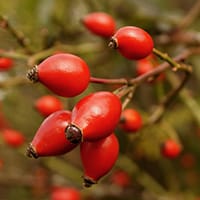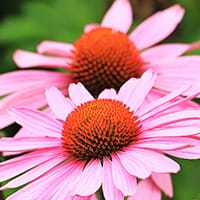
Winter is often the time that people succumb to cold and flu symptoms, making Christmas and New Year celebrations more of a headache than a joy. However, whether or not you catch these viruses is down to your overall level of health and vitality so now is the time to boost your defences. Fortunately, nature provides us with numerous options to help with this:
Look after your gut
The ‘microbiome’ (otherwise known as the populations of good and bad bacteria and yeasts) in our gut provides the foundations of our immune system. Having adequate ‘good’ gut flora is the best defence against external pathogens, such as seasonal viruses. So keep your levels topped up with daily servings of probiotic, fermented food and drinks, such as raw sauerkraut and fermented vegetables, kefir and kombucha. Alternatively you can take a multi-strain probiotic supplement.

Keep tabs on your Vitamin D levels
Vitamin D3 helps regulate the immune system. Unfortunately, in the UK we can only obtain adequate levels of Vitamin D from the sun between April and September so our levels often dwindle during autumn and winter. In terms of food, fermented cod liver oil is the best source. Oily fish and grass-fed meat and eggs will also provide some but an additional D3 supplement may be needed.

Think Zinc
Think zinc as well as Vitamin C as both nutrients are essential components of our immune cell response. Vitamin C is readily available in fruit and green veg but levels are quickly depleted by cooking and long-term storage (eg shipping of produce overseas). Consider boosting your intake of natural vitamin C with a concentrated fruit powder such as baobob, rosehip or acerola cherry. Zinc is found in meat, liver, seafood and nuts and seeds, especially pumpkin seeds. Bee pollen – ‘Mother Nature’s multivitamin and mineral’ – contains nearly every nutrient we need so taking a spoonful or two a day can help boost overall energy and vitality.

Prone to mucous?
Viruses and bacteria are transmitted through the nose and mouth and it is mucous they latch onto. Saline nasal rinses help to keep the airways clear, as does oil pulling – an Ayurvedic tradition of swishing oil (virgin sesame, sunflower or coconut) around the mouth for 5-20 minutes before teeth cleaning. The oil helps to drain mucous and draw out all the old immune cells and their waste products from the sinuses and nearby lymphatic tissue to keep the passages smooth and clear.

Avoid sugar
Not only does sugar suppress our immunity but it also feeds bacteria, viruses and fungus and promotes mucous production so will prolong an infection. At the first sign of illness cut out all bread, cakes, biscuits and sweets (which shouldn’t be a regular part of the diet anyway!) and stick to vitamin-rich, lower glycaemic fruits, such as citrus and berries.

Organic Food
Opt for unprocessed organic food and supplements to minimise intake of immune-suppressing toxins.
Garlic is antimicrobial and ginger is anti-inflammatory. Add them both to soups or make a fresh ginger root tea with lemon.

Immune-boosting herbs
Additional immune-boosting herbs to consider: elderberry, echinacea, olive leaf, oregano. Taking andrographis at the first sign of illness can significantly reduce its severity and duration, too.
Address stress – Feeling stressed has a hugely debilitating effect on our immune function, so be sure to nurture yourself, get some fresh air and daily exercise, and laugh everyday!

By CNM Graduate in Nutrition, Elspeth Waters


